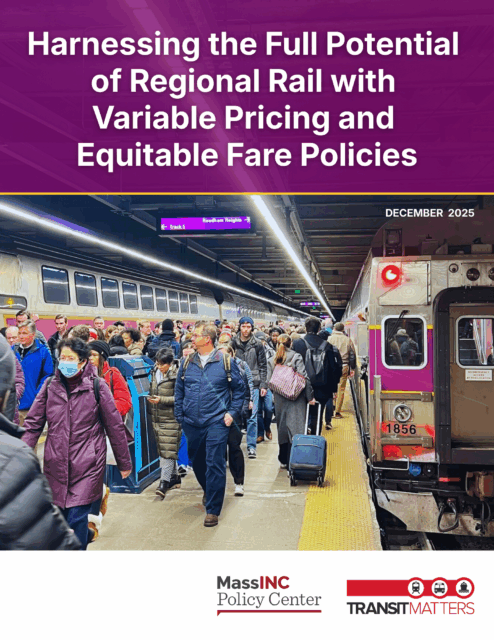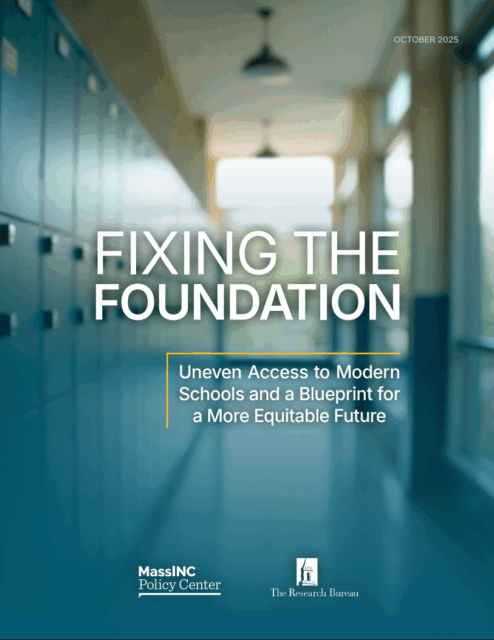
Ben Forman is the Director of MassINC’s Policy Center. He coordinates the development of the organization’s research agenda and oversees production of research reports. Ben has authored a number of MassINC publications and he speaks frequently to organizations and media across Massachusetts. With a background in urban revitalization and sustainable growth and development, he is uniquely suited to the organization’s focus on strong communities and economic security.
Prior to joining MassINC in 2008, Ben oversaw strategic planning for the District of Columbia Department of Parks and Recreation, a large agency providing critical services to youth and families in neighborhoods throughout the city. He also worked as a research assistant at the Brookings Institution Metropolitan Policy Program in Washington, DC and Nathan Associates, a global economic development consulting firm.
As a graduate student, Ben was awarded a Rappaport Public Policy Fellowship and served in the City of New Bedford’s planning department. He also worked as a graduate research assistant on a multi-year longitudinal analysis measuring the impact of new information technologies on neighborhood social networks.
Ben graduated from Trinity College, Hartford with a bachelor’s degree in economics. He completed his master’s degree in city planning at the Massachusetts Institute of Technology.
-
Harnessing the Full Potential of Regional Rail with Variable Pricing and Equitable Fare Policies
This analysis outlines a practical path to increasing ridership and expanding access on the commuter rail through variable pricing and more equitable fare structures. The report shows how Massachusetts can make measurable progress toward Regional Rail by leveraging existing system capacity to strengthen economic mobility across the Commonwealth.
December 9, 2025
-
Gateway Cities Journal | Legislative hearing focuses on empowering Gateway City residents with Community Schools
Gateway City leaders filled Beacon Hill to champion a new Community Schools Commission that could help scale a model proven to strengthen neighborhoods, deepen trust, and expand opportunity for children and families.
November 14, 2025
-
Gateway Cities Journal | School-Centered Neighborhood Development has its day on Beacon Hill
Gateway City leaders push for policies that link schools, housing, and community development to create vibrant, mixed-income neighborhoods where families and students can thrive.
October 16, 2025
-
Fixing the Foundation: Uneven Access to Modern Schools and a Blueprint for a More Equitable Future
This report examines disparities in school facility conditions across Massachusetts and their implications for student learning.
October 7, 2025
- Nearly 60% of Massachusetts’ lowest-rated or over-capacity schools are located in Boston or a Gateway City.
- At the current pace, it could take 50 years to replace or renovate all high-need school buildings in Massachusetts.
- Suburban districts received 57% of major MSBA Core Program grants since 2015, while Boston and Gateway Cities received less than 19%.
-
Gateway Cities Journal | Rolling up our sleeves to build the schools students deserve
Massachusetts’ current school construction funding system reinforces inequities, leaving Gateway City students in outdated and inadequate facilities while suburban districts benefit disproportionately. There must be bold, collaborative solutions to ensure all students can learn in modern, 21st-century schools.
October 3, 2025









